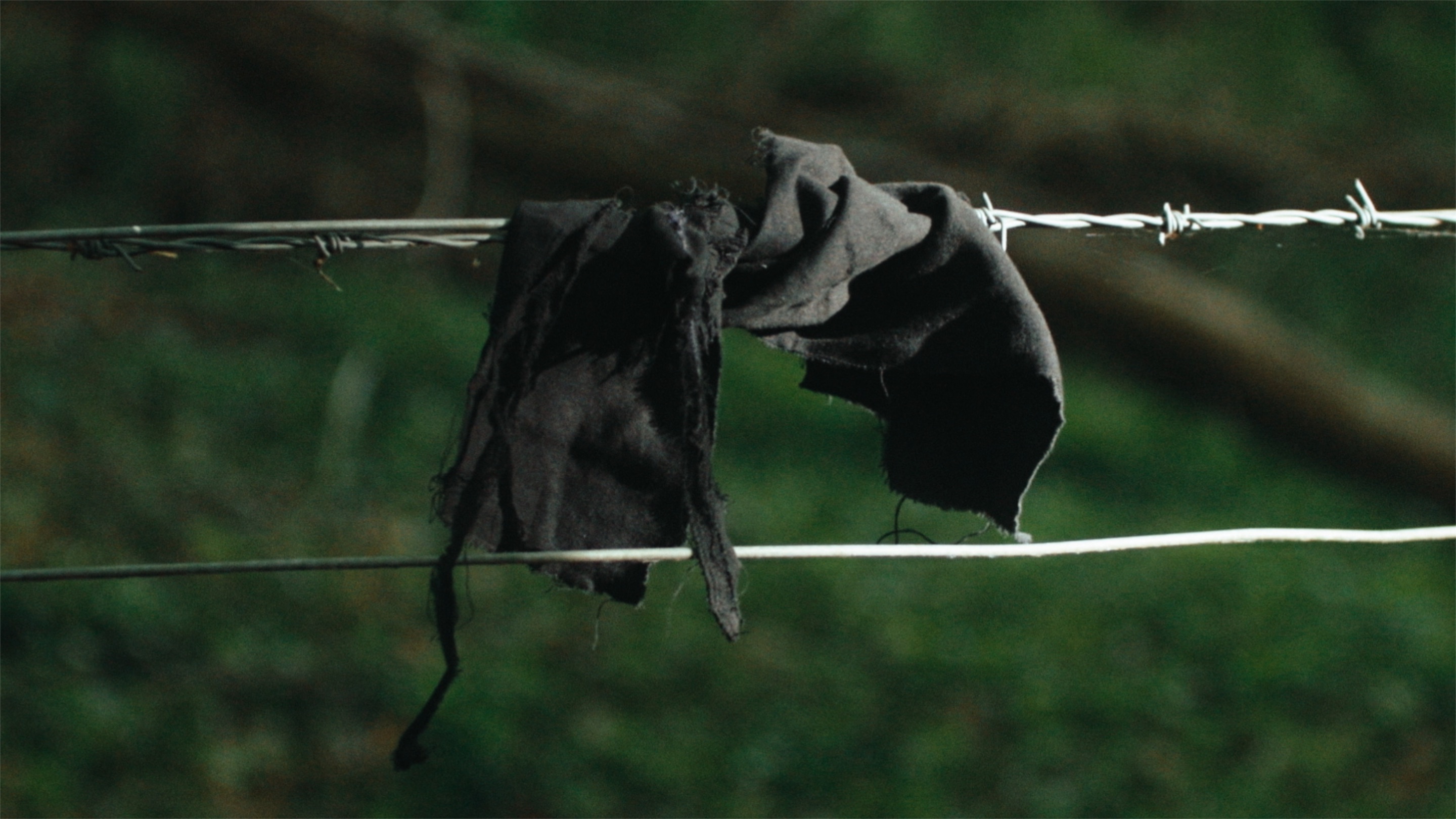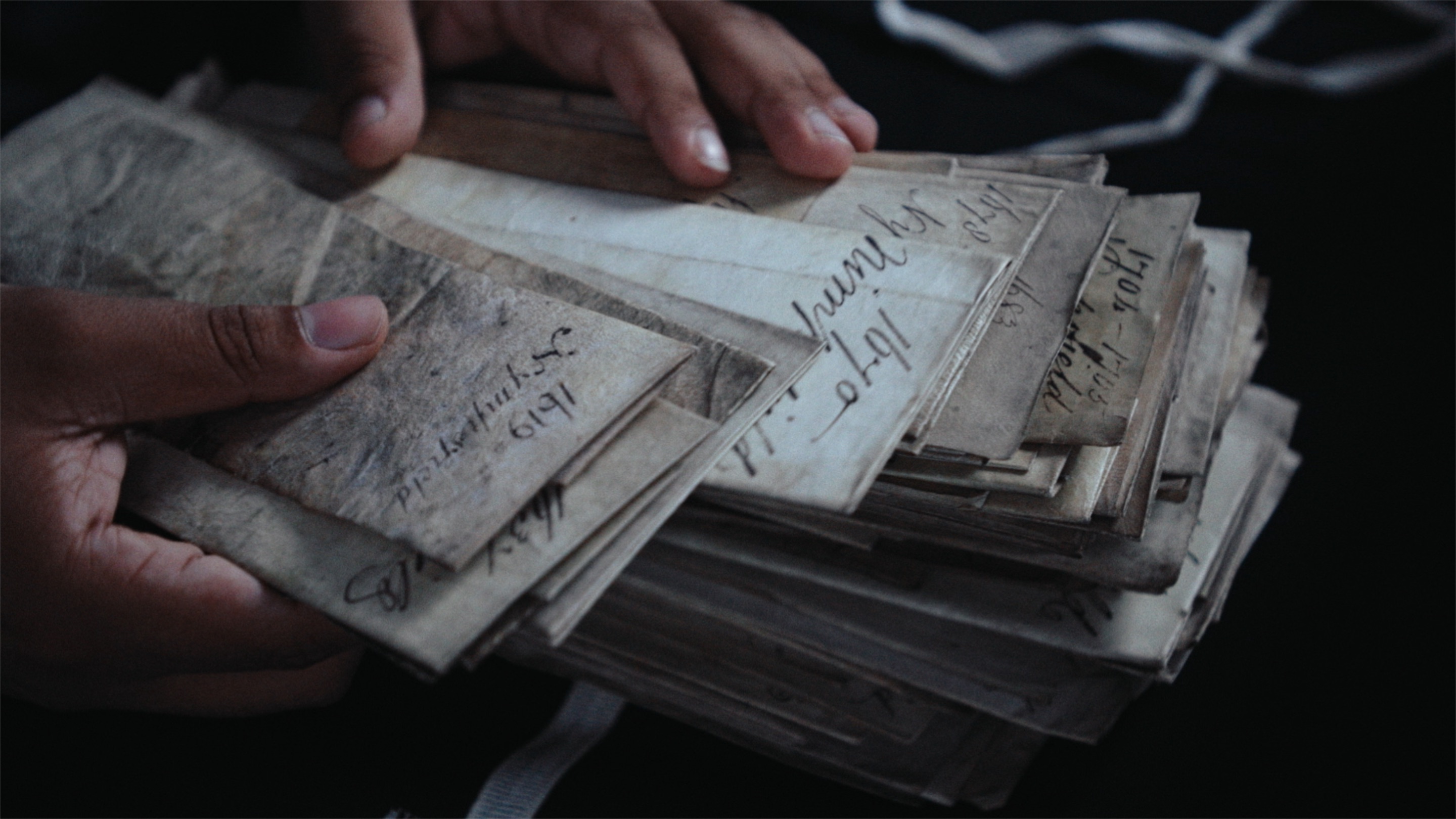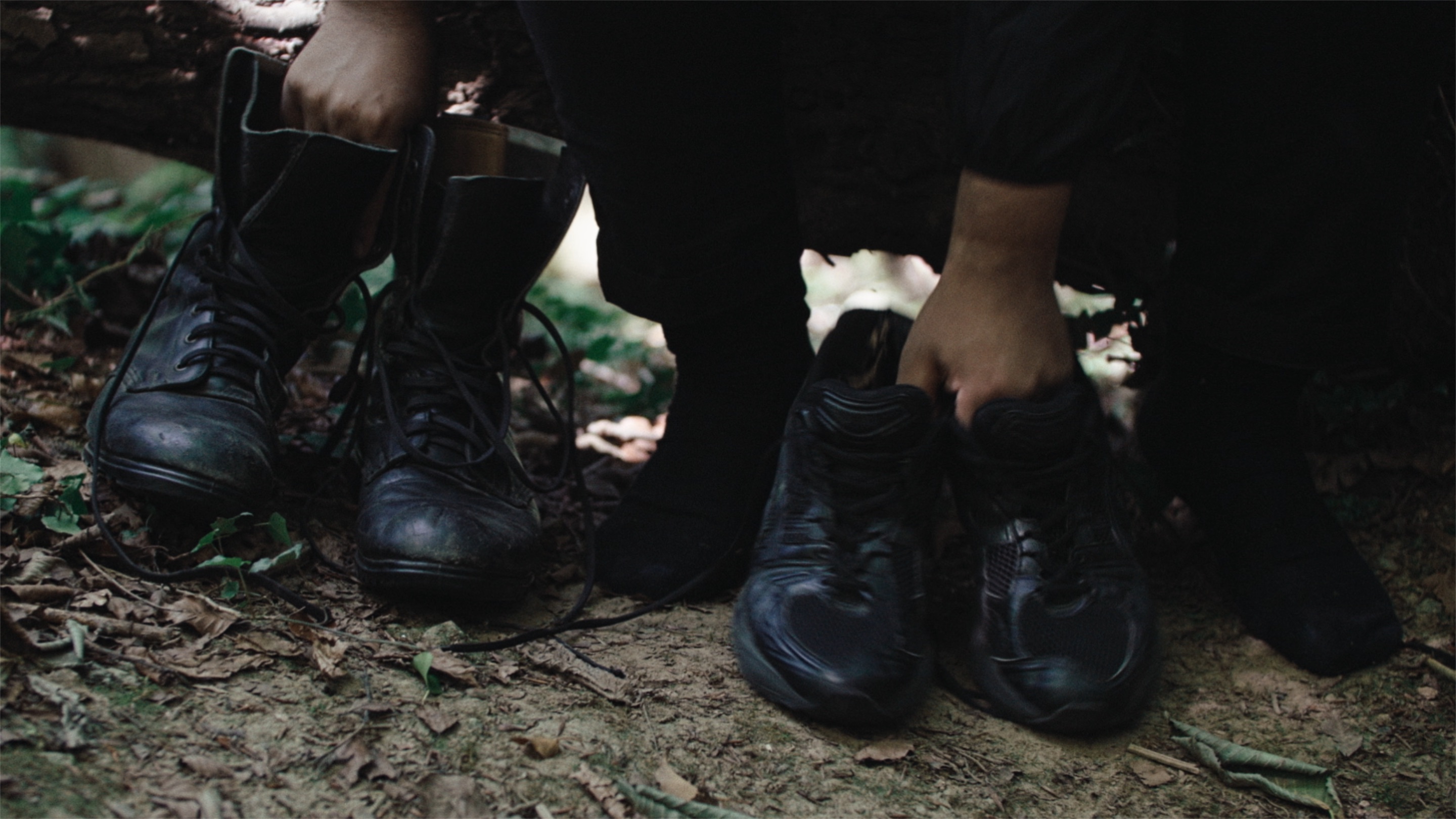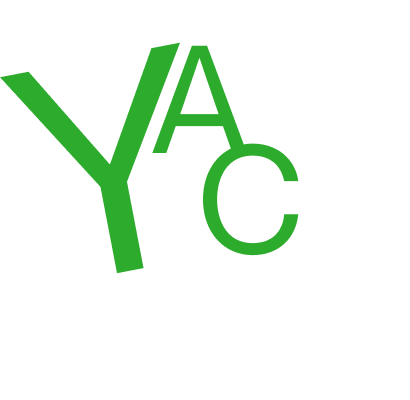Dan Guthrie
Interview by Kelsey Cruz-Martin
-
Published in March 2023
-

black strangers, film still, 2022
Hey Dan, congrats on black strangers going about the place as part of the Right of Way tour and getting into Berlinale Forum Expanded! For those who haven’t seen it yet, can you tell us what the film’s about?
Hey Kelsey! This film is all about my attempts to track down an eighteenth-century namesake of mine called Daniel who was buried on the 31st of December 1719. On a local parish record, he’s described as ‘a black stranger’ and in the film I speculate about the parallels between me and Daniel and try to wrestle with the problems that come with trying to work with archives and fill in their gaps.
When I was working on this project there was a prompt from Holly Pester (as quoted by Taylor Le Melle) that I had on a post-it stuck above my desk - ‘raising questions rather than demonstrating facts’ - and those six words feel like a pretty neat encapsulation of what I set out to do, especially given that there wasn’t a lot of material to work with in the first place.
I know that you’ve worked with personal archives on previous projects but what was it like working with source material from a public collection for the first time?
It was certainly an interesting process. I first saw this reference to Daniel on a resource produced by Gloucestershire Archives after the Black Lives Matter protests of 20202 which compiled parish records dating from the seventeenth to nineteenth centuries relating to Black, Asian and minority ethnic people in the county. These records were maintained by the church and so only capture events like baptisms and burials, which are very much snapshots of an individual’s life but are proof that somebody was in a certain place at a certain time.
Obviously when I stumbled across Daniel it was a bit of a goosebumps moment as we share the same name (I’m always Dan but I’m a Daniel on my passport) and his entry kept ticking over in the back of my head. When it came to filming the record, I had already seen a scan of the document online but nothing really prepares you for when you see the real thing in person – I didn’t think I’d have such an emotional reaction to what is essentially a bureaucratic form!

black strangers, film still, 2022
There’s a real beauty in the simplicity of some of the footage which allows the tenderness of the narrative to shine. What was the thinking behind those editing decisions?
I think a lot of that comes down to me not being a professionally trained editor. I’m not someone who’s going to try and tidy up a shot with post-production magic, I’m just cutting and combining clips together on instinct. In fact, most of it was shot on instinct as well, I’m not really a storyboarder, I’m more of a rock up with a camera and figure it out type of person. The track out of the cafe area was completely unplanned and was shot as we were leaving Gloucestershire Archives after doing some scheduled filming there.
Perhaps the simplest sequence of all is probably the last section of the film where it’s a black screen and just my voice with no sound design. That decision came from simply having nothing to show after my fruitless search for Daniel, and rather than try to construct a scene to fill in that gap, the work just felt stronger when I embraced the notable absence.

black strangers, film still, 2022
Speaking of narrative, there’s a bit at the start of the film where you interrupt yourself talking and it feels like the perspective shifts from being a first person confessional to this self-questioning hovering view. Could you expand on that?
That particular line - ‘‘this feels like too much too soon’ - started off as one of my editing notes and then got absorbed into the script itself. I set out to write this narrative that revolves around me asking all these unanswered questions and I think I had gotten to a point where I felt I had gone a bit OTT with what I’d written. There's a tradition of voiceovers being this empirical device where you don’t really question them and more importantly they don't question themselves, and that felt like something I wanted to try and counter especially when working on a piece that’s driven by an interrogation of its source materials.
In fact, it almost doesn’t feel quite right to refer to what I’m saying as a ‘voiceover’ as rather than explaining things to the audience I’m ignoring them completely and attempting a dialogue with Daniel; he’s the one the film is made for really, everyone else is a bystander. But of course it’s nice that people are getting to see the work and resonating with what I’m talking about as I think we’ve all had moments where we wish we could connect with someone who we’re unable to get a response from.
 black strangers, 2022, installation view at LUX as part of Right of Way, January - March 2023. Image by Sun Park
black strangers, 2022, installation view at LUX as part of Right of Way, January - March 2023. Image by Sun ParkI know that whilst you were working on this film you were involved with the Blackboy Clock debate that’s been happening down in Stroud where you live, how has that impacted the film?
Before making this film I was very much someone who pointed the camera at something and let it speak for itself. But during the peaks of that debate, I kept getting emails from journalists saying ‘I’m from XYZ organisation, can I speak to you about this?’ and I felt like I had to engage with those requests. The government’s plan with all of these controversial statues is to ‘retain and explain’ them so I felt like there was a responsibility to provide an opposing voice and so I said yes to almost all of the interviews. It's a very weird experience being interviewed for the news and not something I would ever normally do, but I think by working through that discomfort I got a lot more relaxed hearing my own voice back and felt more confident about using it in my own work.
When it came to filming, which wasn’t long after the clock hit the news for the second time, I got a call from an organisation called Hope Not Hate warning me that there was a chance a far-right group might be coming to Stroud to protest the clock the day I’d planned to film. I was told that their strategy was to try and doorstop individuals and film them to get a reaction, and obviously I’d signed up to go into the woods and have people with cameras follow me around that day, so there was a bit of a strange parallel. It was certainly in the back of my head when we were filming and it certainly got channelled into the finished product but the difference was that I was surrounded by a supportive group of crew members and not unsupportive hecklers!
-
danguthrie.net
︎ @danglefree
kelseycruzmartin.com
︎ @kelseycruzmartin
-
If you like this why not read our interview with Kelsey Cruz-Martin.
-
© YAC | Young Artists in Conversation ALL RIGHTS RESERVED
